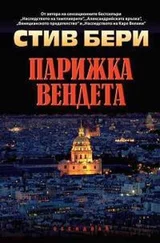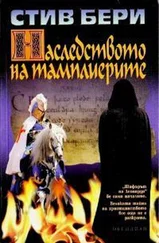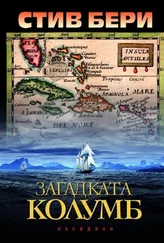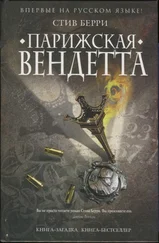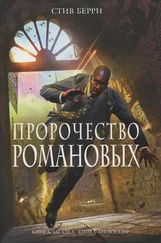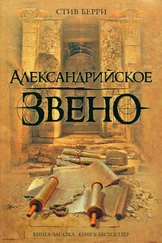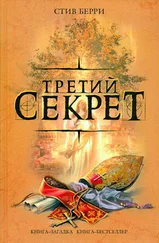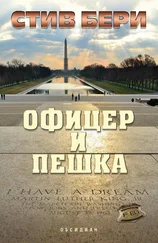Prior to that time, though, the region would have offered a nearly perfect sanctuary for one of the world’s most wanted war criminals. World War II in Africa was little more than a press account, the conflict not spreading much beyond the Sahara region, thousands of miles to the north. Martin Bormann would have been a nobody, and Luis Soreno would have been an even greater shadow. From the letters it appeared Bormann had continued his wartime policy of staying out of the limelight. The letters talked of giraffe, eland, zebra, and springbok. The Sorenos lived in a ranch house with sandstone walls and a corrugated iron roof. A sweeping veranda overlooked flat mountains and aromatic cherry orchards. But there was a sadness to the prose, one that signaled a troubled life.
“Who was this woman?” the carabinero asked, after finishing reading another letter.
He knew he could not answer truthfully. “A disappointed wife. Not happy.”
“The husband seems a brutal man.”
He could not argue that fact, especially concerning someone who claimed the Holocaust on his résumé.
He reached into the container and lifted out the final two bundles of letters. At the bottom lay a single sheet of white paper, the blue ink crisp, the script feminine.
Clearly recent.
He lifted out the note and read the English.
You now understand the pain the Widow endured for the love of her true husband. She should have died with him in the bunker, but he demanded she flee. As a wife did at that time she obeyed her husband, but her sorrow was a life without him. However we might feel about Hitler, she loved him. Go to Africa and the place mentioned in the letters. There, all will become clear. I am sure you think me either obsessed or insane. Who could blame you? There is no reason for you to believe me, after all my entire purpose for being here was to deceive you. But I do hate the Kaiser and you are being manipulated. If possible, please allow me to offer one last bit of verification. In the mountains near here, beside the north shore of Lago Girasol, stands a schlöss. A place where the followers once gathered. It is an old place, known only to a few. Going there will show you that I speak the truth.
Another prod to move him forward along some carefully chosen path. Part of the Kaiser’s web? A trap? Or a genuine offer of proof?
Who knew.
His thoughts were suddenly interrupted by the opening of the front door. He looked up to see Cassiopeia enter, followed by Vergara. An anxious look filled her eyes. One he did not like.
“Trouble?” he asked.
She nodded and they retreated upstairs where they could talk in private. She explained about financial records and a link to Eisenhuth-Industrie and Herzog Concern.
He asked, “How much was transferred?”
“Nearly a hundred million euros over a long period of time.”
He now understood. “We were sent here to find those records. This whole thing is not about Pohl being Bormann’s son. It’s about Marie Eisenhuth. We’re here to find the evidence that will take her down.”
He told her about Ada’s duplicity.
“Pohl fed the original information to Eisenhuth, using Gerhard Schüb’s name, so the chancellor would come looking,” he said. “Then they killed Hanna Cress and that investigator to keep us interested, and made sure we found those financial records. Only Ada’s improvisations seem unexpected.”
Cassiopeia sat on the edge of the bed. “So there probably is no son of Bormann and Braun. Why would Pohl risk that exposure with this plan?”
“He wouldn’t. This is about the Eisenhuth and Herzog families being implicated with Nazi wealth. And what better way to prove authenticity than by it being found by us.”
He told her about Ada’s handwritten note. “She has to be telling the truth. Nothing in the stuff sent to Marie Eisenhuth mentions Africa. But thinking back on it now, they don’t really mention any locations at all. Just details of encounters that could have occurred anywhere. According to Ada, Bormann and Braun left Chile in 1947 and never returned. And the letters from Braun bear that out.”
“Provided they’re authentic.”
“They are.” He had no doubt about it.
“That means the financial information on Marie Eisenhuth’s husband and father is true. Why else point us straight at it?” Cassiopeia said.
He nodded. She was right.
“We need more information,” he said.
And he knew where to get it.
“Let’s go see Ada again.”
CHAPTER THIRTY
8:15 P.M.
The sun was gone by the time Cotton and Cassiopeia left the chalet and drove toward Tilcara. It was a forty-minute ride through dark, forest-clad mountain roads. Vergara offered to accompany them, but they declined.
This trip needed to be made alone.
He slowed and entered the small town, easing past darkened buildings. Streetlights illuminated only the intersections. Then he sped out, the headlights cutting tight cones into the blackness ahead.
He spied the church from earlier.
Every window was a colorless rectangle. If not for a half-moon high in the eastern sky the building would have been nothing more than a splotch in the night. He parked again out front and they walked around to Ada’s cottage. No lights burned there, either, but the front door was cocked open. Cassiopeia apparently sensed trouble, too, and they both reached under their jackets for guns.
I’ll take the front, he mouthed. You double around back and see if there is another way inside.
He headed toward the door.
Cassiopeia rounded a corner toward the rear of the house. He stopped short and listened, searching for movement. No wind disturbed the trees. Frogs croaked out a concert in the distance, joined by the rattle of crickets. He hugged the jamb and peered inside, but the blackness was absolute. He remembered details of the parlor from earlier. No overhead light, only lamps scattered on tables. To switch one on would require him to be inside and vulnerable.
So he opted for the direct approach.
“Ada,” he called out. “It’s Cotton Malone.”
He waited, but there was no reply.
“Ada.”
Still no reply.
Suddenly the inside was ablaze with light.
“Come on in,” Cassiopeia said.
He entered.
She stood across the room, gun at her side.
On the floor lay a man. Young. Dressed in jeans, shirt, and jacket. A red dot marred his forehead, hands crossed on his chest holding a sheet of paper upon which was written FOR ISABEL.
“My guess is he works for whoever Pohl hired to lead this endeavor,” he said. “Ada said they killed her friend. Now she returned the favor.”
“That’s a bit much for an old woman working at a convalescence home.”
He agreed.
Undeniably, they were dealing with something much more.
But first.
“Let’s search this place.”
Josef Engle parked the car at the chalet.
He’d watched from the road as a vehicle with Cassiopeia Vitt and Cotton Malone sped away. He was still unnerved from the encounter with Ada. All of it would have to be reported to Pohl, and he was not looking forward to that call. But first he had to deal with another matter.
He exited the car and followed a graveled path to the front door. A moment later Deputy Minister of Investigations Juan Vergara answered his knock.
“Where did they go?” he asked.
“They went back to see the old woman. After Malone read the letters.”
Good. His man, on the scene, watching Ada’s cottage, would keep an eye on what happened. “Where are these letters?”
He followed the Chilean into another room where a plastic bin lay open on the floor. A table was littered with envelopes. A uniformed policeman sat in one of the chairs casually reading.
Читать дальше

